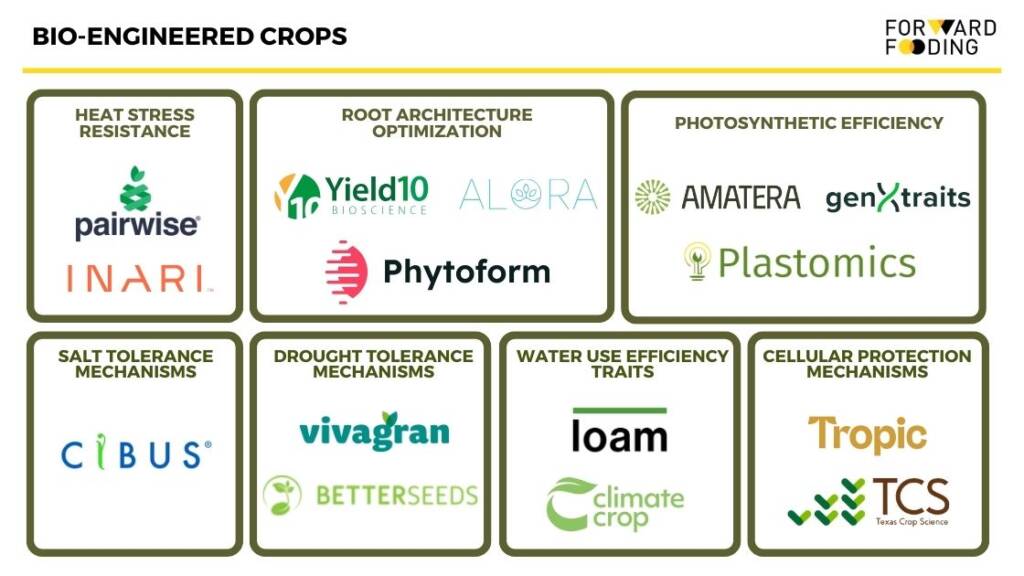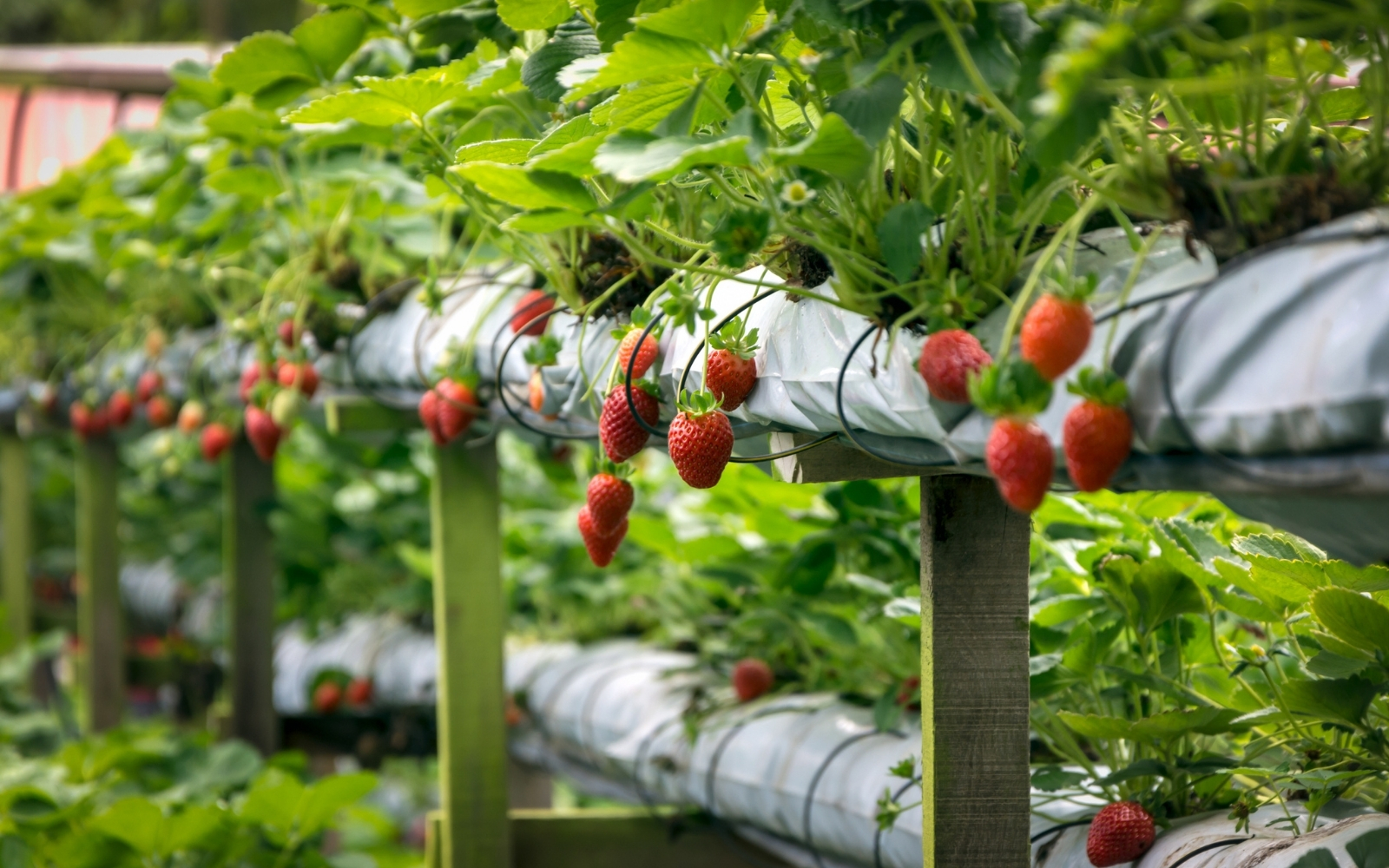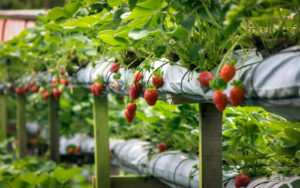Bio-engineered Crops: A Breakthrough for Climate-Resilient Farming
Agriculture remains highly vulnerable to climate change, with rising temperatures, erratic weather patterns, and increasing water scarcity threatening global food production. Drought stress poses one of the greatest risks, particularly in arid regions with low and unreliable rainfall. According to the FAO, from 2005 to 2015, drought caused US$29M in agricultural losses, underscoring the urgent need for solutions. Without intervention, these losses will continue to escalate, jeopardizing food security worldwide.
To address this, researchers are turning to biotechnology to develop drought-resistant crops capable of thriving in water-scarce environments. Advanced genetic engineering techniques can enhance plant resilience, improving yields while minimizing water usage. As the climate crisis intensifies, demand for such innovations continues to grow. The Drought Tolerant Seeds Market reached $97.1 billion in 2023 and is projected to expand at a 6.5% CAGR through 2032, reflecting the increasing adoption of crops designed to withstand extreme conditions.
The Science Behind Bio-engineered Crops
Bio-engineered crops, often referred to as genetically modified organisms (GMOs), are plants whose genetic material has been modified using biotechnological techniques to enhance desired traits, such as drought tolerance. In regions where water scarcity limits agricultural productivity, bio-engineered crops offer a vital solution by maintaining yields under stress conditions, ensuring food security while minimizing water usage.
Key Technologies:
- CRISPR Technology: Clustered Regularly Interspaced Short Palindromic Repeats, or CRISPR, is a powerful tool for precise gene editing. It allows scientists to make targeted changes to an organism’s DNA, enhancing traits including drought tolerance.
- Molecular Breeding: This technique involves selecting plants with desirable traits and crossbreeding them to produce offspring with improved characteristics. Molecular breeding leverages genetic markers, which has led to the development of several drought-tolerant varieties that perform well even under limited water conditions.
- Trait Stacking: This approach combines multiple beneficial traits into a single crop variety. Trait stacking could improve water efficiency and help crops adapt to fluctuating environmental conditions, making them more sustainable in the face of climate change.
- Root System Engineering: This method focuses on modifying root architecture to improve water uptake. Research from UC Davis highlights how manipulating specific gene families can lead to longer roots capable of accessing deeper water supplies, allowing for enhanced biomass and grain yield under drought conditions.
- Osmotic Stress Tolerance: Another critical aspect of bio-engineered crops is their ability to withstand osmotic stress, which occurs when plants face high salinity or low water availability. Advances in genetic engineering have led to the identification and manipulation of genes that enhance osmotic stress tolerance. For example, certain transgenic crops have been developed that can better manage osmotic pressure at the soil-root interface, allowing them to utilize available water more effectively even under drought conditions.
Ag Biotech Startups to Watch
The agricultural biotechnology sector is rapidly evolving to address the pressing challenges of climate change, particularly in developing drought-resistant crops. Here are some key innovation areas that are gaining traction.

Disclaimer: This list of companies is not exhaustive and only features certain products for demoing purposes – the full list is available via the FoodTech Data Navigator.
Drought Tolerance Mechanisms
This area focuses on various genetic modifications that enable crops to withstand periods of low water availability. Some startups in this space include BetterSeeds and Vivagran.
Water Use Efficiency Traits
Innovations in this area involve developing crops that can maximize water uptake and utilization. Techniques such as root system engineering and osmotic stress tolerance are crucial for improving how plants manage water resources, making them more resilient in arid conditions. Companies like ClimateCrop and Loam Bio are focusing on this area of innovation.
Heat Stress Resistance
Genetic modifications that enhance heat tolerance can help maintain yields during extreme weather events. Companies like Inari and Pairwise are innovating in this space.
Salt Tolerance
As soil salinity increases due to climate change and irrigation practices, developing salt-tolerant crops is essential. Startup Cibus uses precision gene editing to develop crops with salt tolerance traits, enabling cultivation in saline soils.
Root Architecture Optimization
Enhancing root systems enables crops to access deeper moisture and nutrients. Startups like Yield10, Alora, and Phytoform Labs are exploring root architecture optimization to improve drought resilience.
Photosynthetic Efficiency
Improving photosynthetic pathways can significantly enhance crop productivity under stress conditions. This area of research is crucial for developing high-yielding varieties that can perform well in challenging climates. Amatera, genXtraits, and Plastomics are some of the companies focusing on this innovation.
Cellular Protection Mechanisms
Innovations that enhance cellular protection against environmental stresses are vital for crop survival. This includes developing traits that protect plants from oxidative stress caused by drought and heat. Startups Tropic and Texas Crop Science are pioneering in this space.
What’s Slowing Progress?
The development and adoption of bioengineered crops face several significant challenges, which must be addressed to realize their full potential in enhancing agricultural resilience.
Regulatory Hurdles & Public Perception: Current regulations, especially in the EU, slow the development of gene-edited crops. The complex approval process reduces investment in new varieties and affects policies worldwide. Public concerns about GMOs, often fueled by misinformation, create additional market barriers. These challenges particularly impact smaller companies and developing nations that look to EU standards for guidance.
R&D Costs & Scaling Difficulties: Creating new crop varieties requires substantial time and money. Long development cycles make it difficult for startups to bring products to market quickly enough to address urgent climate challenges. The combination of high R&D costs and uncertain regulations makes it harder for companies to attract investment and scale their technologies.
Environmental & Ethical Considerations: While gene-edited crops aim to improve sustainability, questions remain about their effects on biodiversity and wild species. Concerns include potential genetic transfer to other plants and impacts on local ecosystems. There’s also an ongoing debate about the ethics of genetic modification in agriculture, including questions about food system control and the extent of genetic alterations. These discussions shape both policy decisions and public acceptance.
Startup Case Studies
Case Study #1: Inari

Image courtesy of Inari
Inari uses genomics, AI, and gene editing through its SEEDesign platform to create crops with higher yields and better resource efficiency. The platform analyzes plant biology at a deep level, enabling precise genetic improvements.
platform to create crops with higher yields and better resource efficiency. The platform analyzes plant biology at a deep level, enabling precise genetic improvements.
Recently, Inari secured $144 million to further scale and commercialize its advanced seed technologies, particularly for crops like corn, soybeans, and wheat.
Case Study #2: Tropic Biosciences

Image courtesy of Tropic Biosciences
Tropic Biosciences uses CRISPR and other gene editing tools to improve tropical crops like bananas and rice. Their GEiGS® platform lets them deactivate specific genes to enhance crop traits – making plants more resistant to disease, better tasting, and more climate-resilient while reducing pesticide needs.
In 2024, the Philippines classified Tropic’s reduced-browning bananas as non-GMO, opening the market for import and cultivation. These enhanced bananas could significantly reduce food waste, with potential CO2 savings equivalent to removing 2 million cars from annual road emissions.
Case Study #3: Phytoform Labs

Image courtesy of Phytoform Labs
Phytoform develops faster, more cost-effective ways to enhance crop traits using its CRE.AI.TIVE machine learning platform. This technology combines AI and genomic data to identify precise DNA modifications, which it implements through footprint-free genome editing and microfluidics. This approach creates climate-resilient crops in months rather than years without using transgenes and can be applied across multiple crop species.
In November last year, Phytoform launched a smaller version of the Ailsa Craig tomato plant. This plant stands at just one-sixth the regular height while producing five times more fruit. The variety is specifically engineered for vertical farming systems.
Case Study #4: ClimateCrop

Image courtesy of ClimateCrop
ClimateCrop enhances plant performance through targeted gene editing of leaf starch storage mechanisms. By modifying how plants store starch in their leaves, the company improves photosynthetic efficiency without using GMO methods. This leads to crops with higher yields and better resilience to drought and heat stress while reducing resource consumption.
The company was recently recognized on the Diamond List for 2024 for its commitment to sustainable agriculture and climate resilience.
The Path Forward
Gene-edited crops are emerging as key tools for agriculture in dry regions, offering new ways to handle water scarcity and drought. By combining AI analysis with precise genetic modifications, scientists can develop hardier crops that use fewer resources.
For these technologies to reach farmers’ fields, we need aligned efforts from regulators, scientists, and investors. Clear regulations and continued research funding will help bring drought-resistant crops from labs to farms, strengthening food security as climate pressures increase.
Forward Fooding is the world’s first collaborative platform for the Food & Beverage industry via FoodTech Data Intelligence and Corporate-Startup Collaboration – Learn more about our Consultancy and Scouting Services and our Startup Network.
This post Bio-engineered Crops: A Breakthrough for Climate-Resilient Farming appeared first on Forward Fooding – Powering the Food & Food Tech revolution!.














Post Comment